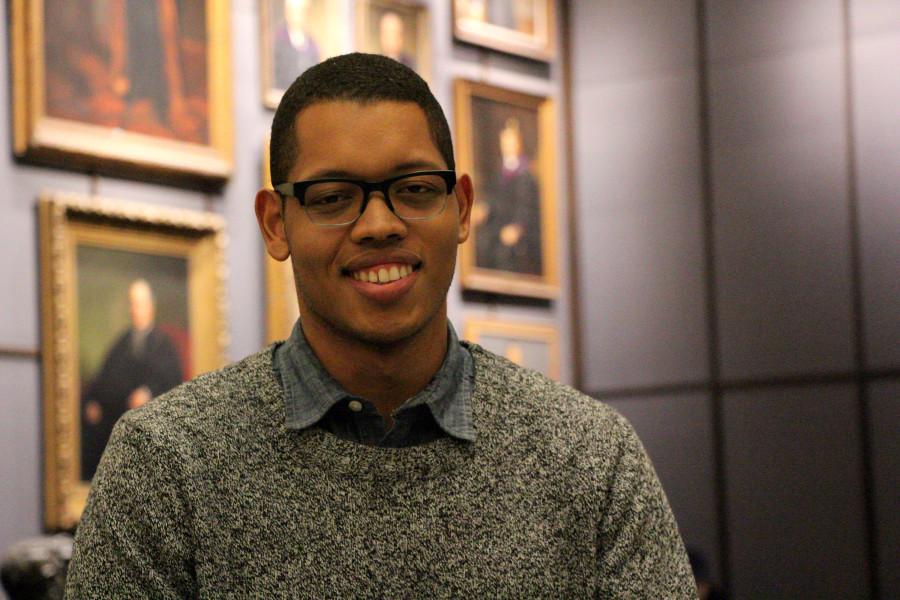Q&A: Marshall Scholarship recipient discusses sustainability research
Gallatin senior Robert Clinton concentrating on Sociology and Politics of Urban Agriculture, has been awarded the prestigious Marshall Scholarship.
December 2, 2015
Gallatin senior Robert Clinton is one of 31 U.S. students to be awarded the prestigious Marshall Scholarship and will spend the next couple years at the University College London. He will work toward a Master of Science in Sustainable Urbanism and Master of Research in Interdisciplinary Urban Design.
The Marshall Scholarship is awarded annually to up to 40 Americans students. Winners receive full financial backing to pursue two graduate degrees from universities in the United Kingdom. The program aims to strengthen ties between the United States and Britain and provide future American leaders with an understanding and appreciation of contemporary Britain.
WSN sat down with Clinton to talk about his studies and what the future holds.
WSN: What does your concentration, the Sociology and Politics of Urban Agriculture, mean to you?
Robert Clinton: The Sociology and Politics of Urban Agriculture is about sustainable composition. It’s thinking of environmentalism through the lens of food and exploring the inclusion of alternative green spaces in ever-changing cityscapes. I think about what people eat, the cultural contexts of our cuisine and where our food comes from, then connect these ideas to a broader understanding of our built and natural environments.
WSN: Has your research indicated any steps that NYU could take to create a more environmentally sustainable cityscape?
RC: NYU is one of the largest property owners in New York, so what we do matters. Empowering ordinary people to make a tangible, positive impact on their environments is how we’ll make real progress. I think we can better explain the composting and recycling system in Kimmel and show students how much their choices matter. We can rethink the usage of roof space on campus, incorporating green roofs into our buildings. We can encourage residents who live on campus to bring their own cutlery and plates to food programs, cutting down on our usage of paper plates and plastic forks and knives.
WSN: Do you see New York City as a future hub of agricultural farming?
RC: I don’t think New York City will be the hub, per se, but it can become a major player. It’s all about regime — the elite, governments and developers have a vested interest in maximizing profit from land usage, which sometimes conflicts with an environmentalist’s vision of open green space. It’s really up to citizens to secure the place of progressive environmentalism on the planning agenda.
WSN: What cities do you think are on the leading edge of urban agriculture?
RC: I’m really interested in Seattle’s Beacon Food Forest, which is a public space where all citizens can forage for food. Detroit’s reclaimed urban space is also bringing urban agriculture to the forefront of city planning, as is Will Allen in Milwaukee.
WSN: What are the different ways urban agriculture can conserve the environment?
Clinton: Urban agriculture can have lots of tangible benefits in conserving the environment, including cutting down on food transportation, reducing the use of pesticides and providing bees with pollination sites in urban areas. What’s equally interesting, though, is its ability to change our relationship with the natural world. In a cityscape dominated by concrete, it’s easy to forget that we exist within the nature, not above or alongside it. Reimagining this connection can have a large-scale impact on our environmental consciousness.
WSN: What are your goals for the future? How will the Marshall Scholarship help you achieve them?
Clinton: My goal is to make cities a more livable place for all citizens. Environmentalism and food are my focus, but economics and politics are also major components of a sustainable city life. My degrees, exposure to life in London, the U.K. and Europe and the networking opportunities will make it possible for me to make a lasting, positive impact on the green cities of the future.
Email Thomas Peracchio at [email protected].



























































































































































